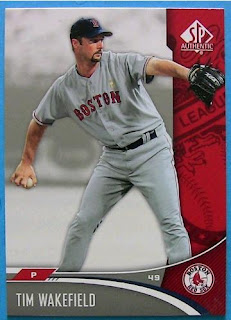ETF Trends posted a recap of research from S&P that concludes that certain single country ETFs can be used as proxies for sectors. The examples shared in the ETF Trends post were iShares Canada (EWC) and iShares UK (EWU)--you can look at the funds for yourself to decide whether those particular ETFs are proxies for anything.
One S&P researcher noted that “We think a creative alternative to investing in industry sectors is through country ETF securities. We think this is a way to gain a higher percentage exposure to specific industries or sectors that an investor may favor.”
 This is noteworthy for several reasons. The first thing I would point out is that this is something I have been writing about for many years. A big factor in portfolio success over the last ten years (more importantly this will continue into the future) has been the use of narrow based products (specialty funds and individual stocks). The way I've targeted this is building portfolios at the sector level choosing whatever product (or more than one product) I thought made for the best way to capture each sector. The secondary consideration is how to embed themes and countries into the portfolio.
This is noteworthy for several reasons. The first thing I would point out is that this is something I have been writing about for many years. A big factor in portfolio success over the last ten years (more importantly this will continue into the future) has been the use of narrow based products (specialty funds and individual stocks). The way I've targeted this is building portfolios at the sector level choosing whatever product (or more than one product) I thought made for the best way to capture each sector. The secondary consideration is how to embed themes and countries into the portfolio.
As one example of this, I've mentioned using Vale (VALE) as a proxy for both Brazil and the materials sector.
The IndexIQ Canada Small Cap ETF (CNDA) is about 72% weighted to resource stocks. I would say that this would make CNDA a proxy for natural resources. Over time it may or may not prove out as being a desirable proxy based on return, volatility, maybe yield or a couple of other things that an end user might care about.
The bigger opportunity I see here is that if S&P can finally clue in to the potential application in this context then it may lead to more useful products from fund providers. I saw where iShares filed for six Asian ETFs but it looks like most of them will be broad based funds. That misses the mark. A new broad based fund might be incrementally better than an existing one but won't offer a meaningful improvement. The smaller ETF providers understand this and the bigger ETF providers do offer funds with utility to be sure the referenced filing from iShares is more a waste of time and resources but I think the bigger companies will also head in the direction of more specialized funds which gives do-it-yourselfers who do not want to keep track of 40 individual stocks a better chance for portfolio success.
Congrats to Tim Wakefield for getting win number 200 last night.
One S&P researcher noted that “We think a creative alternative to investing in industry sectors is through country ETF securities. We think this is a way to gain a higher percentage exposure to specific industries or sectors that an investor may favor.”
As one example of this, I've mentioned using Vale (VALE) as a proxy for both Brazil and the materials sector.
The IndexIQ Canada Small Cap ETF (CNDA) is about 72% weighted to resource stocks. I would say that this would make CNDA a proxy for natural resources. Over time it may or may not prove out as being a desirable proxy based on return, volatility, maybe yield or a couple of other things that an end user might care about.
The bigger opportunity I see here is that if S&P can finally clue in to the potential application in this context then it may lead to more useful products from fund providers. I saw where iShares filed for six Asian ETFs but it looks like most of them will be broad based funds. That misses the mark. A new broad based fund might be incrementally better than an existing one but won't offer a meaningful improvement. The smaller ETF providers understand this and the bigger ETF providers do offer funds with utility to be sure the referenced filing from iShares is more a waste of time and resources but I think the bigger companies will also head in the direction of more specialized funds which gives do-it-yourselfers who do not want to keep track of 40 individual stocks a better chance for portfolio success.
Congrats to Tim Wakefield for getting win number 200 last night.
CNDAConcord Acquisition Corp II
$10.61-%
Edge Rankings
Momentum-
Growth-
Quality-
Value-
Price Trend
Short
Medium
Long
© 2025 Benzinga.com. Benzinga does not provide investment advice. All rights reserved.
Posted In:
Benzinga simplifies the market for smarter investing
Trade confidently with insights and alerts from analyst ratings, free reports and breaking news that affects the stocks you care about.
Join Now: Free!
Already a member?Sign in